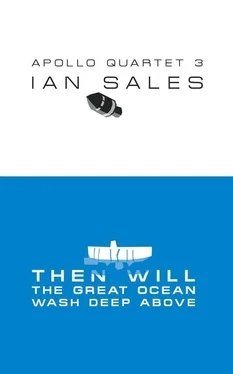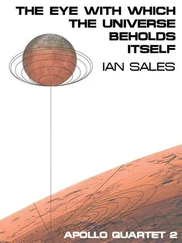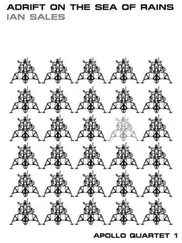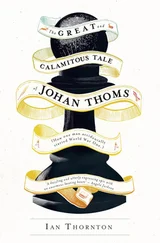Shortly before the Lovelace Clinic testing took place, Randy Lovelace contacted Jackie Cochran, the most famous and most accomplished woman pilot in the US, who was a close personal friend. Cochran too wanted to be considered for astronaut training, but she was over the age limit and generally not in good health. She was however determined to control any programme involving women astronauts, much as she had done with women pilots during World War II.
In 1942, Nancy Love had persuaded the US Army Air Forces brass to create the Women’s Auxiliary Ferrying Squadron while Cochran was in Britain flying for the Air Transport Auxiliary. On learning of this, Cochran was furious—she had made a similar proposal earlier but it had been rejected. She returned to the US and used her many contacts among the USAAF high command to form the Women’s Airforce Service Pilots with herself in charge. Love’s WAFS became a part of Cochran’s WASP.
In a similar fashion, Cochran would not accept Cobb as the leader of the Mercury 13 and worked tirelessly to take control of the group. While Cobb wanted to prove that she, and by extension the other twelve women pilots, were as capable and qualified as the Mercury 7 and so should be recruited as astronauts, Cochran wanted to create a testing programme to form a pool of suitable candidates should NASA ever decide to fly a woman. This would later prove the programme’s undoing.
Once the testing at the Lovelace Clinic had concluded, Lovelace set about arranging for further tests similar to those undertaken by the male astronauts. Because of the incident with Nichols, USAF refused the use of their facilities. Cobb, however, discovered in her home town of Oklahoma City something better than the phase two tests undertaken by the Mercury 7. Psychiatrist Dr Jay T Shurley had built a sensory isolation tank in the basement of the Oklahoma City Veterans’ Hospital where he worked. This was far superior to the darkened room used on the male astronauts. Shurley put Cobb in the tank… and she broke all previous records, spending three times as long, in a more isolated condition, than the best of the Mercury 7. The sensory deprivation tank, plus a battery of psychological tests, became phase two of the Mercury 13 programme.
Lovelace managed to persuade the US Naval School for Aviation Medicine at Pensacola, Florida, to lend its facilities for a third phase of testing. In June 1961, Cobb spent ten days at Pensacola, undergoing spaceflight simulation tests in a high-altitude chamber, experiencing the Multi-Place Ditching Trainer and a slow rotation room, and undertaking a variety of physical fitness trials. She passed them all. Arrangements were made for the remaining twelve FLATs to undergo the same regimen of tests, and they were told to report to Pensacola on 18 July 1961—but this was later postponed to 18 September.
Before that could happen, Jackie Cochran, upset because she felt she had been sidelined from leadership of the programme, spoke to Vice Admiral Robert B Pirie, head of US Navy air operations, about her concerns that the Mercury 13 programme was being mismanaged. Pirie wrote to James Webb, NASA Administrator, who responded that NASA had no interest in women astronauts. The US Navy promptly withdrew the use of its Pensacola facilities.
Cobb was still determined to prove she had the “right stuff” and campaigned tirelessly for selection by NASA. She appeared in the press numerous times—her testing at the Lovelace Clinic was the subject of an article in the 29 August 1960 issue of Life, and her time in the sensory deprivation tank also appeared in Life’s 24 October 1960 issue. Cochran herself also wrote an article about two of the Mercury 13, twin sisters Marion and Jan Dietrich, which appeared in the 30 April 1961 issue of Parade magazine; and Marion Dietrich penned an article on the testing for McCall’s magazine’s September 1961 issue.

NASA Administrator James Webb tried to fob off Cobb by offering her a contract as a special consultant for the organisation (however, NASA never asked Cobb to do anything, and she was never paid). But Cobb continued to campaign for NASA to accept some or all of the Mercury 13 as astronauts. If the Russians were planning to put a woman into space, she argued, then here were thirteen opportunities for the US to do it first. NASA was adamant only men could be astronauts, and would not even admit that it had deliberately fixed its entry requirements such that women could not qualify. At that time, such prejudice was not against the law. In 1963, NASA even rejected an African-American astronaut, USAF Captain Edward Dwight Jr, despite the fact he met all the selection criteria. Cobb continued to campaign for the chance to fly in space, and with the help of Janey Hart, another of the Mercury 13, the wife of a US senator and a seasoned Washington insider, managed to convince Congress to set up a special subcommittee hearing.
Then, on 16 June 1963, Valentina Tereshkova became the first woman in space. This was a blow to Cobb’s campaign. Hart was less concerned as she had been pushing an anti-discrimination agenda—the Kennedy administration, after all, had publicly committed itself to gender equality.
For years after Tereshkova’s flight, it was rumoured she had performed badly, incapacitated by space sickness and too poorly trained to undertake any useful tasks. In fact, her flight was very successful—much more so than that of Gherman Titov, the second cosmonaut in space. But she too had to deal with discrimination in the USSR.

On 17 July 1963, Cobb and Hart testified before a congressional subcommittee. Although one or two members of the special subcommittee seemed sympathetic, the outcome was a foregone conclusion. When Mercury astronauts John Glenn and Scott Carpenter gave their testimonies, they forcefully insisted there was no need to train women astronauts. “The men go off and fight the wars and fly the airplanes and come back and help design and build and test them. The fact that women are not in this field is a fact of our social order,” Glenn testified. That Glenn did not have a degree—one of the qualifications needed to become an astronaut—but was still selected was mentioned but passed over swiftly. Though the Mercury 13 had outperformed the Mercury 7 in many tests, none of the women had flown jets or were jet test pilots, and so “did not meet” NASA selection criteria. The test pilot requirement was dropped later that year—Buzz Aldrin, one of NASA’s third intake of astronauts, was never a test pilot. Also not mentioned was Carpenter’s poor performance during his space flight, though this omission may have been more to keep confidence in the Mercury programme high.

The biggest blow to Cobb and Hart’s campaign, however, came from Jackie Cochran. Since the Lovelace Clinic tests, Cochran had been insisting she was in charge, writing to various members of the Mercury 13 laying out her ideas and plans. Cochran testified that she saw no good reason to make a woman an astronaut simply because she was a woman. She re-iterated Glenn’s argument that women belonged in the home—even though her own career was an exception to that rule—and opined that it was the job of men to lead the way and for the women to follow on and “pick up the slack”.
Although scheduled for three days, the congressional hearing closed after two. Cobb and Hart had lost, and the Mercury 13 went their separate ways. Many had lost, or resigned from, their jobs to take part in the programme. Not all managed to pick up the pieces of their lives, but some did continue over the years to keep the dreams of the Mercury 13 alive. Cobb herself left the US to become a supply pilot for a missionary organisation in South America.
Читать дальше















